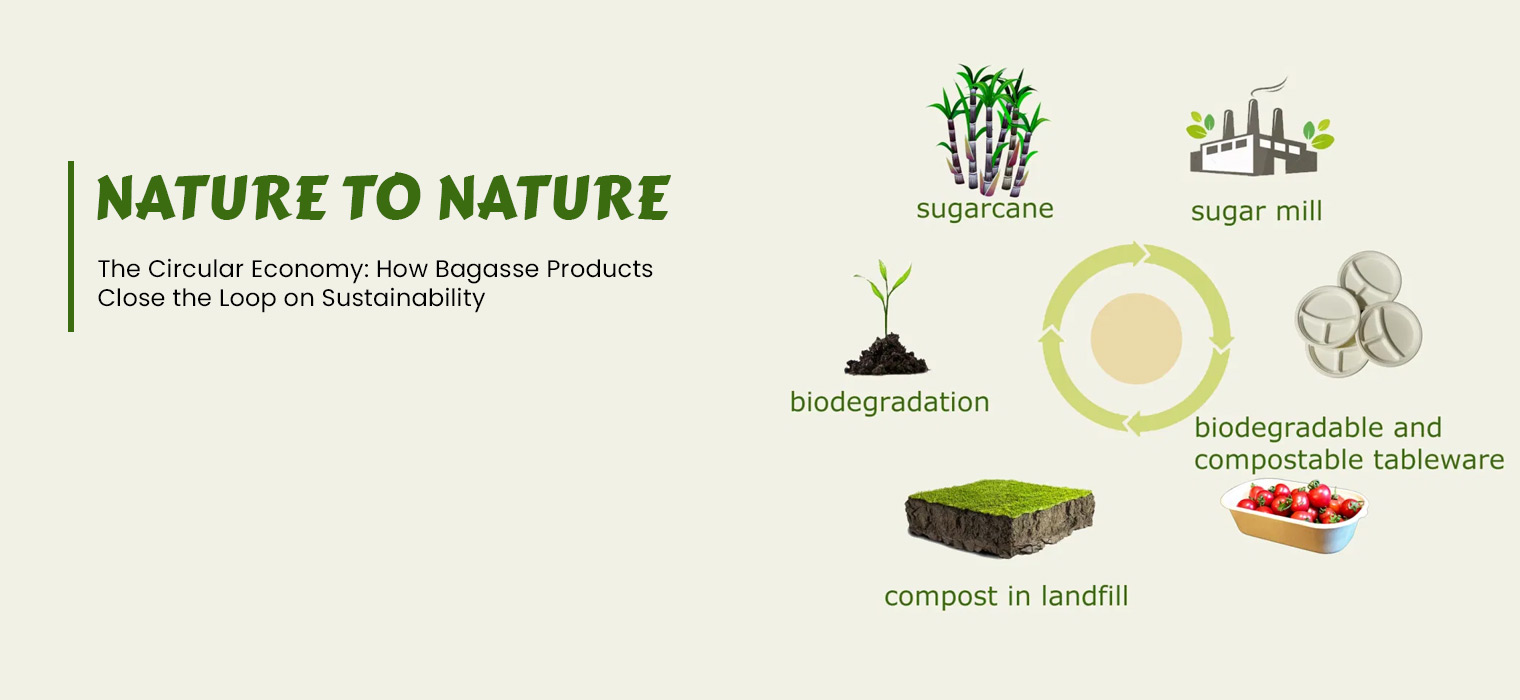The Circular Economy: How Bagasse Products Close the Loop on Sustainability
The circular economy is a concept gaining traction in environmental discussions worldwide. It represents a shift away from the traditional linear economic model of "take, make, dispose" to a more sustainable approach where products and materials are reused, recycled, or repurposed. One shining example of this circular economy in action is the use of bagasse products, which beautifully demonstrates how waste can become a valuable resource in a sustainable world.

The linear economy, often referred to as a "throwaway culture," has led to significant environmental challenges. As we extract resources to create products, use them, and eventually discard them as waste, we deplete natural resources and contribute to pollution and greenhouse gas emissions. This linear approach is simply not sustainable in the long term.
The circular economy, on the other hand, aims to minimize waste and keep products and materials in circulation for as long as possible. It advocates for reusing, refurbishing, and recycling, rather than disposing of items after a single use. By doing so, we reduce the strain on natural resources, decrease pollution, and cut down on the emissions associated with production.
Bagasse products exemplify this circular model brilliantly. Bagasse, the fibrous byproduct of sugarcane processing, is typically considered waste. However, it has found new life as a sustainable alternative to single-use plastics. Bagasse is collected, processed, and repurposed into a wide range of products, including tableware, containers, and packaging.
When these bagasse products reach the end of their life cycle, they naturally biodegrade, returning to the earth as organic matter. This creates a closed loop where waste becomes a valuable resource once more. In essence, bagasse products are designed to minimize waste and keep resources in circulation, aligning perfectly with the principles of the circular economy.
The adoption of bagasse products and the principles of the circular economy go hand in hand with the growing global commitment to sustainability. As more individuals and businesses embrace these concepts, we move closer to creating a world where waste is minimized, resources are conserved, and our environmental impact is significantly reduced.
In conclusion, the circular economy is not just a buzzword; it's a tangible way to shape a more sustainable future. Bagasse products, by closing the loop on sustainability, offer a practical solution that minimizes waste and supports eco-conscious choices. This transition from a linear to a circular model is a crucial step toward a more environmentally responsible and sustainable world.
